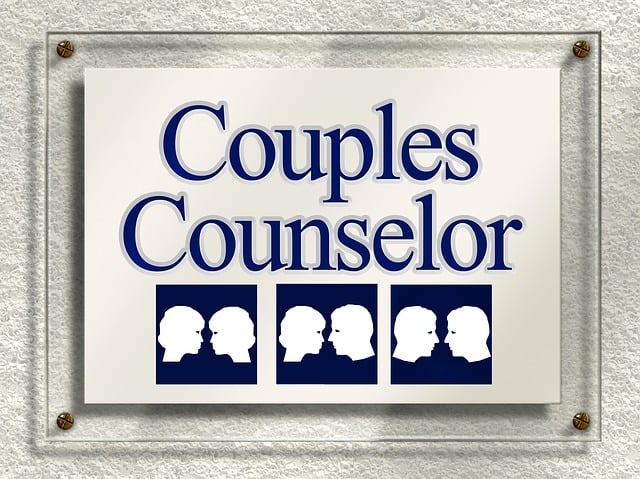Emotion-Focused Therapy (EFT) is a powerful tool for couples counseling, prioritizing emotional connection as the foundation of healthy relationships. By encouraging partners to explore and express feelings, EFT fosters intimacy, resolves conflicts, strengthens bonds, enhances empathy, and improves overall relationship satisfaction. This therapy equips couples with skills in emotional awareness, active listening, and understanding each other's perspectives, ultimately cultivating deeper connections. However, challenges include resistance due to past experiences or cultural norms, therapist skill inconsistencies, and the complexity of intertwining emotional issues. Choosing an experienced and skilled couples counseling therapist is crucial for effective EFT and relationship improvement.
Emotion-focused therapy (EFT) is a powerful approach transforming couples counseling. By prioritizing emotions as key drivers of relationship dynamics, EFT helps partners understand and resolve underlying conflicts. This article delves into the mechanisms of EFT for couples, exploring its benefits, techniques, and challenges. Learn how identifying emotional issues can strengthen bonds, enhance communication, and foster growth. Discover the steps to finding a qualified therapist who specializes in couples counseling through EFT, empowering you to navigate relationship struggles with newfound insight and connection.
Understanding Emotion-Focused Therapy for Couples

Emotion-Focused Therapy (EFT) is a powerful approach for couples counseling, designed to help partners understand and manage their emotions effectively. This therapy recognizes that emotional connection is at the heart of any relationship, and by focusing on emotions, it aims to foster deeper intimacy and resolve conflicts. EFT encourages individuals to explore and express their feelings, providing a safe space to discuss what’s truly important to each partner.
Through this process, couples gain insights into their individual emotional needs and learn to communicate them openly. The therapy also teaches practical skills for managing intense emotions during arguments, promoting active listening, and enhancing empathy. By addressing underlying emotional patterns, EFT enables couples to create healthier dynamics, strengthen their bond, and cultivate a deeper sense of understanding and compassion.
The Role of Emotions in Relationship Dynamics

In the realm of couples counseling, understanding and addressing emotions play a pivotal role in fostering healthy relationship dynamics. Emotions are the unspoken yet powerful force that drives interactions between partners, often shaping their communication patterns and overall connection. Recognizing this, emotion-focused therapy (EFT) specifically targets emotional experiences to help couples navigate challenges.
By exploring and expressing feelings openly, EFT enables partners to gain deeper insights into each other’s perspectives, fostering empathy and strengthening their bond. This process helps unravel the complex web of emotions that can sometimes lead to conflicts, allowing for more constructive ways of resolving issues and enhancing overall relationship satisfaction.
Identifying Emotional Issues in Couples Counseling

In couples counseling, identifying emotional issues is a critical first step towards healing and growth. Therapists skilled in emotion-focused therapy (EFT) employ various techniques to help partners uncover and express their feelings. This involves creating a safe, non-judgmental space where each individual feels heard and validated. By encouraging open dialogue about emotions—both positive and negative—counselors can reveal underlying emotional patterns that may be contributing to relationship challenges.
During sessions, therapists might use reflective listening to help clients understand the meaning behind their emotions. This process enables partners to gain new insights into their behavior and the behaviors of their significant others. By acknowledging and addressing these emotional issues at the root of their conflicts, couples counseling with an EFT approach can lead to deeper connection, improved communication, and a more fulfilling partnership.
Techniques Used in Emotion-Focused Therapy

Emotion-focused therapy for couples involves a range of techniques designed to help partners understand and manage their emotions, as well as improve communication and connection. One key approach is emotional awareness, where therapists guide individuals to recognize and label their feelings accurately. This self-awareness encourages open dialogue about emotional experiences, fostering empathy and understanding between partners.
Another powerful technique is emotional expression, which encourages couples to share their feelings openly without fear of judgment. Therapists create a safe space for expressing both positive and negative emotions, promoting a deeper level of intimacy. Through these methods, couples counseling aims to strengthen emotional bonds, resolve conflicts, and enhance overall relationship satisfaction.
Benefits of Emotion-Focused Therapy for Couples

Emotion-focused therapy (EFT) has gained recognition as an effective approach for couples counseling, offering numerous benefits in addressing relationship challenges. By shifting the focus to emotions, this therapeutic method enables partners to gain profound insights into their feelings and behaviors, fostering a deeper understanding of each other. Through EFT, couples can learn to identify and express their emotions openly, which is often at the core of many interpersonal issues.
One of its key advantages is the improved communication between partners. By encouraging active listening and empathy, EFT helps individuals recognize and validate their partner’s emotional experiences. This enhanced emotional connection can strengthen the couple’s bond, leading to more satisfying and intimate relationships. Moreover, EFT promotes self-awareness, helping each partner understand their unique emotional patterns and triggers, which is vital for managing conflicts constructively and resolving issues from a more empowered perspective.
Challenges and Limitations to Consider

While emotion-focused therapy for couples shows great promise, several challenges and limitations should be considered. One primary obstacle is the resistance from partners who may be unwilling to confront their emotions or engage in vulnerable conversations. This can stem from past experiences, cultural norms, or a desire to avoid conflict. Additionally, not all therapists are equally skilled in emotion-focused techniques, which can lead to inconsistent outcomes.
Another limitation involves the complexity of intimate relationships. Emotional issues often intertwine with other aspects of a couple’s life, such as communication patterns, shared histories, and external stressors. Fully addressing these challenges requires a holistic approach that goes beyond individual therapy sessions. Couples counseling must create a safe space where both partners feel heard, respected, and supported to explore their emotions honestly and work together towards resolution.
Finding the Right Therapist for Your Relationship

Choosing the right therapist is a vital step in the journey towards improving your relationship through emotion-focused therapy. When seeking couples counseling, consider therapists who specialize in this area and have experience working with pairs facing similar challenges. Look for professionals who offer a safe, non-judgmental space where both partners feel comfortable expressing their emotions freely.
An ideal therapist should possess excellent communication skills, empathy, and the ability to create a supportive environment. They should guide you through the process of identifying and understanding your emotional patterns, helping you gain insights into your relationship dynamics. The right therapist will empower you both to make meaningful changes and foster better connection and intimacy in your coupling.
